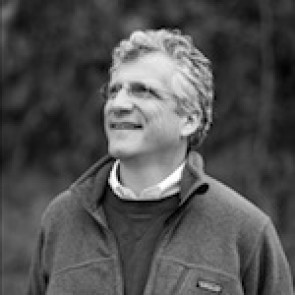
Remarks prepared by William Rosenzweig
On the occasion of the presentation of the Oslo Business For Peace Award
18 October 2010
Distinguished guests, Esteemed honorees,
I am deeply humbled to be here this evening, let alone to be noticed amidst the blazing accomplishments of the luminaries in this room and elsewhere who have committed their lives to using business as a vehicle for transformative societal change.
Physic Ventures provides strategic and financial resources to young businesses that bring technological innovations to consumer markets to address some of the most pressing challenges of our times: The epidemic of chronic disease in an aging and growing global population, spiraling health care costs, natural resource depletion, global warming. By design, we are investing in new business models that have the potential to generate positive financial returns and meaningful social and environmental outcomes.
For me, the people who deserve our attention and support this evening are the visionary entrepreneurial teams who are driving breakthrough innovations via the marketplace. These are the business worthy leaders who are beginning to change the way value is created and measured in society at large.
Physic Ventures’ portfolio spans personal health and planetary sustainability and includes companies like Halosource which sells point-of‐use water purification technologies to deliver safe drinking water in emerging markets; and GoodGuide, an information service that helps consumers understand the health, environmental and social attributes of any product, beneath its label. And Novomer, a green – chemistry company making biodegradable plastics from renewable feed stocks like CO2. Gazelle is a fast growing company pioneering “re-commerce” on the Internet – creating a market for responsible recycling of used electronics such as phones and computers; and Energy Hub, a start-up that empowers citizens and communities to reduce energy consumption. We are working actively to invest in personalized medicine, childhood nutrition and sustainable agriculture as means of using entrepreneurship and innovation to quickly address the pressing challenges of obesity, diabetes and other ills.
All of these businesses are focused on doing well by doing good; their higher purpose is self-evident – but their challenges from the status quo are formidable. For these young enterprises to truly thrive and scale rapidly to reach their full potential, they will need to partner effectively with the public and NGO sectors – through partnerships, incentives, and access to capital and customers who embrace their purpose and products.
While the challenges we face as a global society are massive, pressing and daunting and require most urgent action – it is encouraging to remember that the solutions to most of these problems are within our own immediate ability to solve. We need to continue to invest in talented, committed and resourceful people – and help them bring their bold, transformative healthful ideas to fruition.
The people who know me best know that at heart I am just a quiet gardener. My garden has probably taught me the most about how things grow – and thrive in a vibrant and sustainable manner. These lessons have shaped my approach to encouraging responsible growth in business and to the ways I apply my intention, attention and energy.
A gardener sees the world as a system of interdependent parts – where healthy, sustaining relationships are essential to the vitality of the whole. “A real gardener is not a person who cultivates flowers, but a person who cultivates the soil.”* In business this has translated for me into the importance of developing agreements and partnerships where vision and values, purpose and intent are explicitly articulated, considered and aligned among all stakeholders of an enterprise – customers, employees, suppliers, shareholders, and the broader community and natural environment.
The garden has taught me about patience and persistence and the ethical principles of generosity and reciprocity. It has illuminated the importance of appreciating the cycles of life and decay. For the gardener, composting is a transformative act – whereby last season’s clippings (or failures) can become next year’s source of vigor.
I’ve learned that it’s not just what you plant, but how you plant it that brings long – term rewards in life, work and the garden. Gardeners know that once strong roots are established, growth is often exponential rather than linear.
Also gardening, like business, is inherently a local activity, set within an ever – changing and unpredictable global climate. Showing up in person, shovel – and humility in hand is essential.
Gardeners, like entrepreneurs are obsessed with latent potential – and can be known to be pathologically optimistic. We can vividly imagine the bloom and the scent of the rose even in deepest of winter. As the American naturalist Henry David Thoreau once wrote: “I have great faith in a seed. Convince me that you have a seed there, and I am prepared to expect wonders.”
In essence, the gardener’s work is a life of care. We cultivate abundance from scarce resources. We nurture, encourage, fertilize – and prune when necessary – while being respectful of the true and wild nature of all things. We know that creating enduring value requires vision, passion, hard work and the spirit of others.
I am just coming to understand this work of business gardening – and investing in keeping people healthy – as an act of universal responsibility. His Holiness Dalai Lama reminds me: “Each of us must learn to work not just for one self, one’s own family or one’s nation, but for the benefit of all humankind. Universal responsibility is the key to human survival. It is the best foundation for world peace.”
Today’s recognition will serve as a lasting source of encouragement, as well as a meaningful reminder that there is still much work to be done….
(William Rosenzweig is Managing Partner at Physic Ventures. He supports early-stage ventures in the areas of entrepreneurial leadership, business design, brand strategy and consumer marketing.)
(* – inspired and borrowed from Karel Čapek, The Gardener’s Year, 1929)





